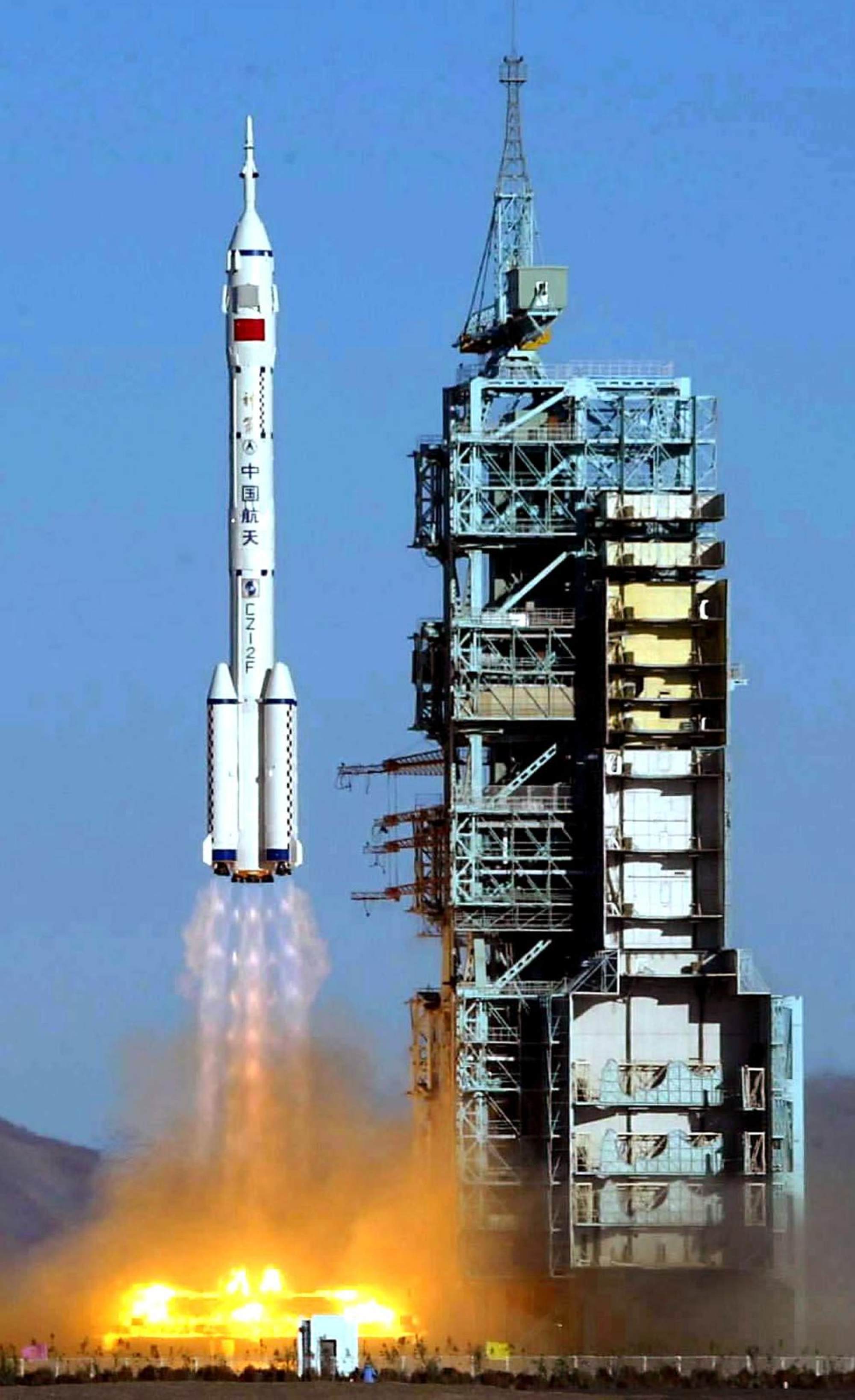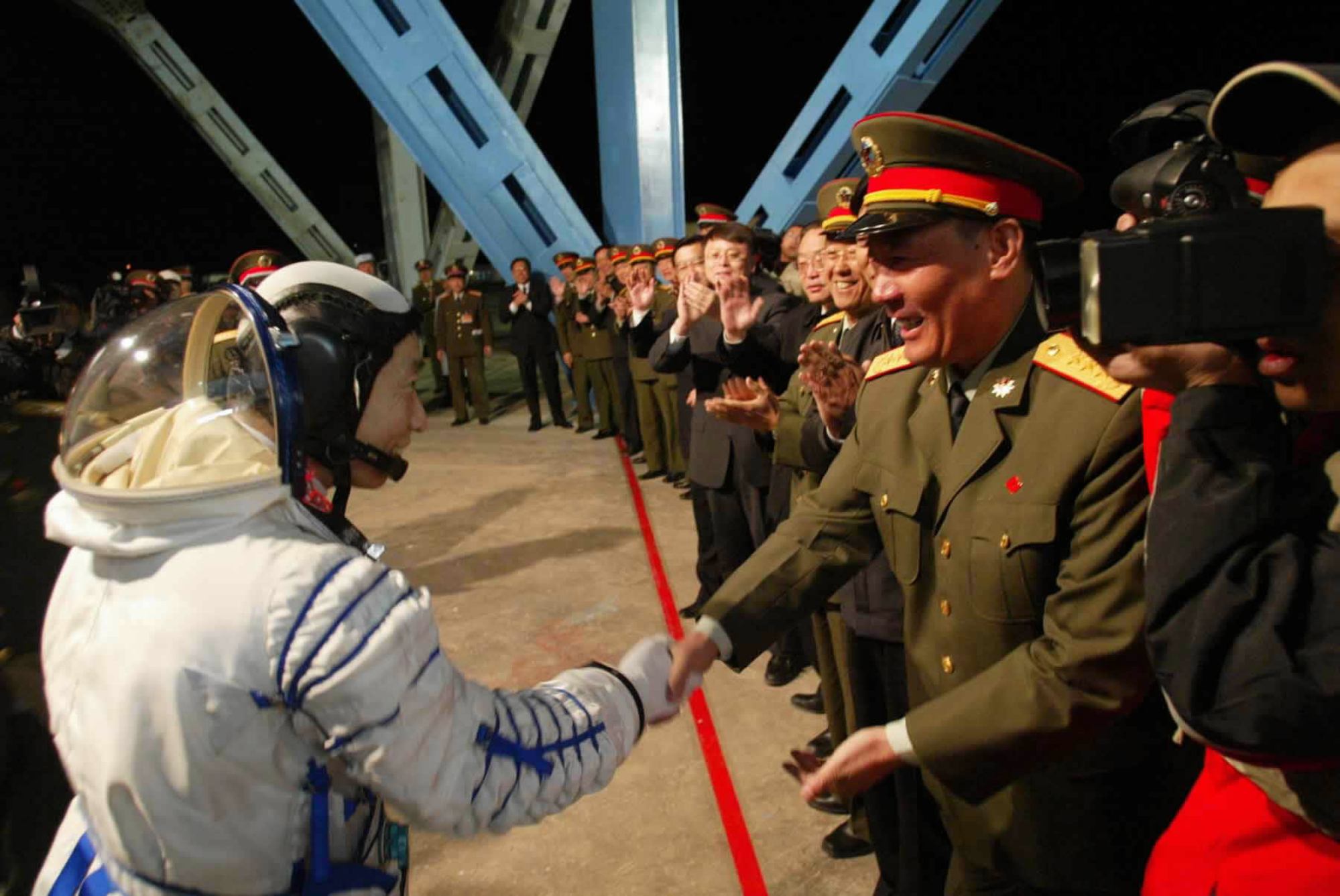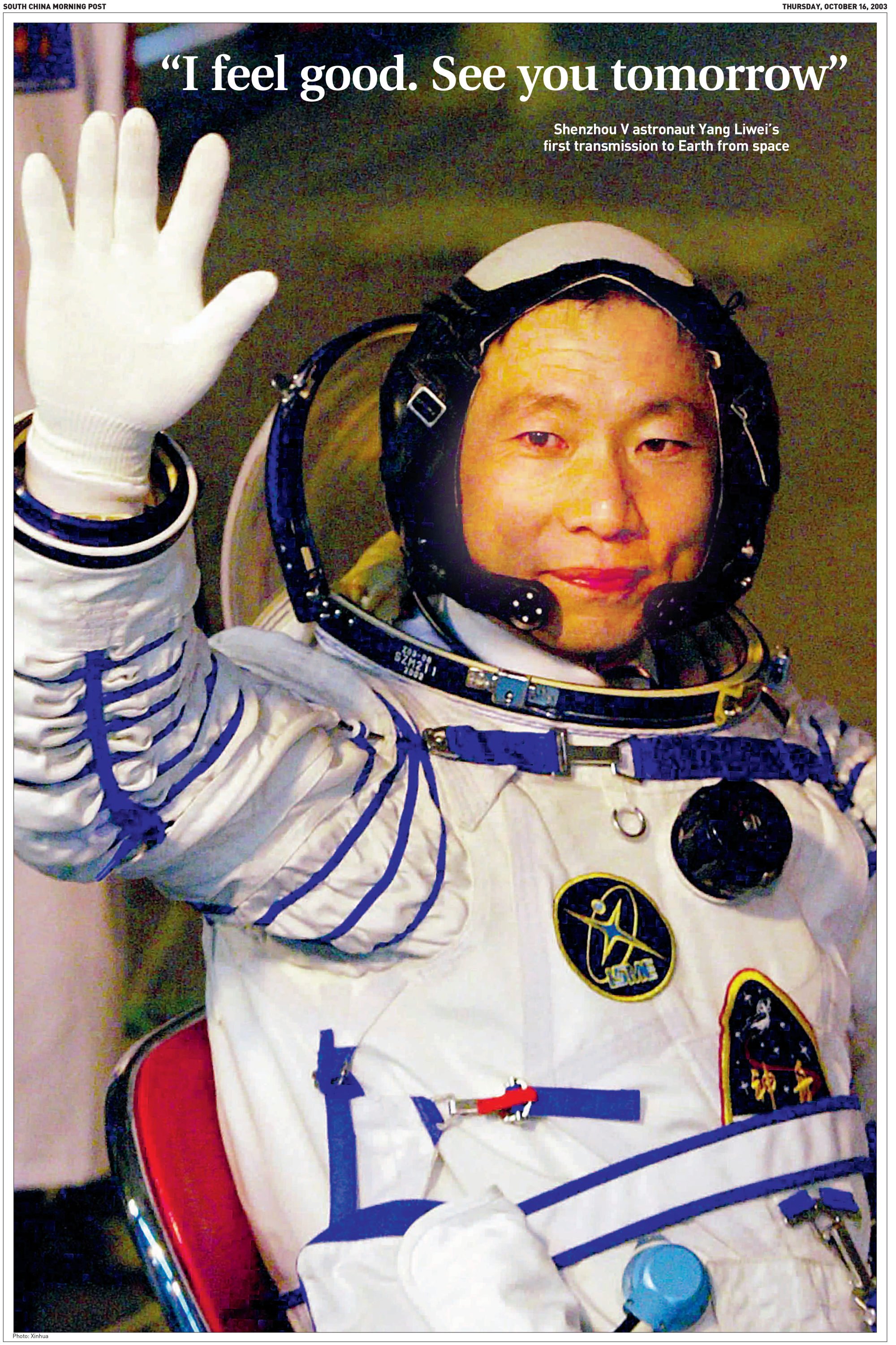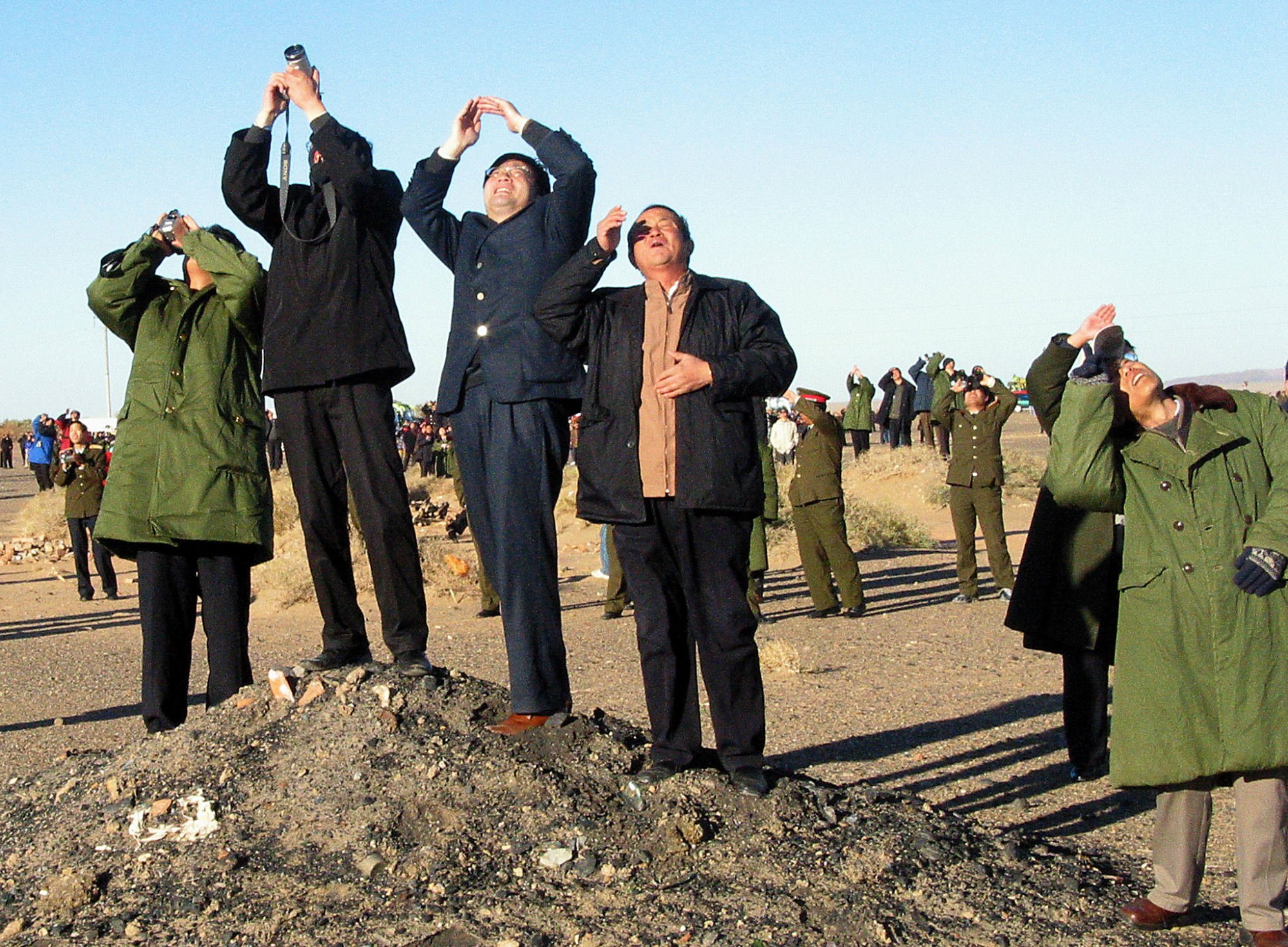The Shenzhou 5 blasted off the launch pad at 9am on Wednesday, the exact time that had been widely rumoured for days.
The Long March CZ-2F rocket carrying the capsule blasted off into clear skies as onlookers clapped and cheered.
Minutes after lift-off, China Central Television cut into programming to announce the launch, and 28 minutes later showed the spacecraft streaking up into the sky, the fiery trail of its booster rockets billowing behind.

Thirty-four minutes into space, Colonel Yang radioed back to the control centre in Jiuquan and said: “I feel good and my conditions are normal.”
The mission appeared to be proceeding without a glitch. The capsule was set to orbit 14 times.
President Hu Jintao, who flew in from Beijing to witness the launch, hailed the event as a great day for China.
“The successful launch signified the first triumph of China’s space flight mission,” Mr Hu was quoted by Xinhua saying. “It is a historic step by the Chinese people in … climbing over a peak of the world’s science and technology.”
Mr Hu told Colonel Yang before lift-off: “We look forward to your triumphant return.”
The president was accompanied to the launch site by two Politburo Standing Committee members, Huang Ju and Wu Guanzheng, and by Defence Minister Cao Gangchuan. There was no sign of former president Jiang Zemin, chairman of the Central Military Commission. There had been speculation about who would get the honour of seeing the astronaut off on his mission.
But Mr Hu made a point of praising Mr Jiang’s past support of the space programme, which was significantly developed under Mr Jiang’s tenure as leader.
With Colonel Yang’s mission still under way, there was little public celebration on the mainland.

Sightseers were seen strolling peacefully in Tiananmen Square taking pictures and there was little to indicate that history was unfolding elsewhere.
But relatives and friends in Colonel Yang’s hometown – Suizhong in Liaoning province – were already celebrating for their hero.
The residents lit up the sky with fireworks and paraded around the streets with firecrackers and gongs.
“Tonight is even more exciting than the Lunar New Year,” one local woman, who gave her name as Mrs Zhang, told Xinhua. “A Chinese man has been put into space. Yang Liwei has made us all proud.”
Colonel Yang’s younger brother, Yang Junwei, said: “I want to tell my brother, ‘Take care, I will pray for you tonight’.”
A source in Beijing said that after landing on Thursday, Colonel Yang would be flown back to Beijing for a massive homecoming party.
Colonel Yang, who was chosen from 12 shortlisted elite fighter pilots, called his wife, Zhang Yumei, and his eight-year-old son, Ningkang, in Beijing from space. “It feels good in space. It’s beautiful,” he said.
“We saw you,” his son said. “We are all very proud of you.”

Early on Wednesday night, Colonel Yang was also in radio contact with Defence Minister Mr Cao, reassuring him everything was going according to plan. “Thank you for your concern, commander, please do not be worried,” Colonel Yang told the minister.
He later radioed control centre saying hello to “Chinese on the mainland, compatriots in Hong Kong, Macau and Taiwan, and Chinese who live overseas”.
The flight was designed to be a simple mission and Colonel Yang was expected to conduct few experiments during his voyage. He was allowed two naps during the mission and was to snack on specially prepared food.
Along with admitting China to the exclusive club of nations that have put a man in space – Russia and the United States are the only other members – the mission has reinforced China’s emergence on the world scene.
As soon as the spacecraft entered orbit, the world began to react to the historic event. Messages of congratulation were issued by the major powers.

Russia, which has trained Chinese astronauts, was among the first to offer an encouraging message. “We welcome this development and congratulate China for joining the club of space powers that have their own manned space programmes,” the first deputy of the Russian space agency, Nikolai Moiseyev, said.
“All of the world’s countries use the benefit of space programmes in one form or another, but only three have manned space programmes of their own – Russia, the United States and China.”
In the US, Nasa administrator Sean O’Keefe described the launch as an important achievement.
“The Chinese people have a long and distinguished history of exploration,” he said. “Nasa wishes China a continued safe human space flight programme.”
British Prime Minister Tony Blair said he was impressed by “the dedication and skill of all those involved in this historic mission”.
But some of China’s neighbours in Asia were less positive, expressing concern over the nation’s growing industrial and economic power. People in Japan and India, countries with their own space ambitions, said they felt China had left them behind.


